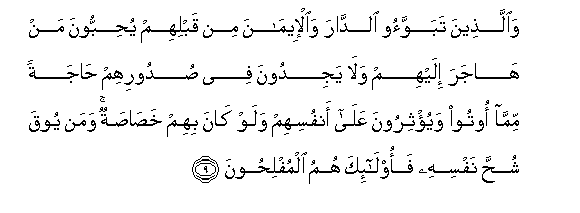Asalamu’alaikum to all Muslims and welcome to all non-Muslim visitors and guests,
The concept of hospitality to a guest is sancrosanct in many cultures intertwined with that is the concept of hospitality to passing travellers from distant places. For such travellers would have been reliant on the mercy or generosity of their hosts in the town or place they were visiting or passing through. If someone was passing through scorching deserts, or through thick jungles, or dangerous mountains without any electricity, computer, internet, phone and no means of communication then to finally see other human beings would have been a welcome sight. They would be weak, perhaps extremely thirsty, semi-starving or more and would have been totally dependent on the good will of their hosts.
Visitors to Muslim lands have noted the extreme generosity of certain Muslims, at times more pronounced than other religious communities or civilisations. However a lot of this actually stems from the teachings of Islam.
Has the story reached you of the honored guests of Ibrahim? Behold, they entered his presence and said: “Peace!” He said: “Peace!” (and thought: “They seem) unusual people.” Then he turned quickly to his household, brought out a roasted fattened calf, and placed it before them. He said: “Will you not eat?” (Quran 51: 24-27)
What is important to note here is that the Quran makes no mention of the guests religious beliefs and whether Ibrahim inquired as to what their religious beliefs were. He did not know anything about them as is clear in the original Arabic:
‘قَوْمٌ مُّنكَرُونَ
‘Qawmun munkiroon’, an unknown people’
So that would include their religion or beliefs.
His immediate reaction was to turn to his his family and to bring out a large calf.
Later on he saw that they were not eating and he prompted them to eat such was his concern about the well-being of his guests.
Also in the Quran is reference to the companions of the prophet who hosted the Muslims who had fled along with the holy prophet صَلَّى اللّٰـە عَلَيْهِ وَاٰلِهٖ to Medina. The Muslims of Medina were known as the ‘Ansar’ (helpers) and the Muslims from Mecca as the ‘Muhajiroon’ (immigrants). The latter were reliant on the former for material support in these difficult times as they had fled persecution and their home city, some leaving everything they had.

‘Those who, before their coming, had their abode (in Madīnah), preparing it as a home for Islam and faith, love those who emigrate to them for God’s sake, and in their hearts do not begrudge what they have been given; and (indeed) they prefer them over themselves, even though poverty be their own lot. Whoever is guarded against the avarice of his own soul – those are the ones who are truly prosperous.‘ Quran 59.9
In addition to verses of the Quran. There are various ahadeeth (reports about the prophet صَلَّى اللّٰـە عَلَيْهِ وَاٰلِهٖ and his statements) on this issue.
“Anybody who believes in Allah and the Last Day should serve his neighbor generously, and anybody who believes in Allah and the Last Day should serve his guest generously by giving him his reward.” It was asked, “What is his reward, O Allah’s Apostle?” He said, “(To be entertained) generously for a day and a night with high quality food and the guest has the right to be entertained for three days (with ordinary food), and if he stays longer, what he will be provided with will be regarded as Sadaqa (a charitable gift).
In traditional Muslim society it was known that a guest had the right to stay in a Muslim’s house for three days. This facilitated travel and the attendant communication and interactions between different peoples and cultures that mutually enriched both parties.
So it is clear that Islam places great emphasis on hospitality, in fact even the pre-Islamic Arabs were known for their legendary hospitality. However this is not something exclusive to Muslims but a part of most cultures, to varying degrees.
If we were to be invited to the house of a king or mighty emperor we would be perhaps humbled, astonished or highly flattered that we were considered worthy of being an invitee of someone of such an eminent status.
If we were to be invited to the white house…
If we were to be invited to Buckingham palace…
However there is someone far, far higher who has extended an open invitation to all to come to his house, and not his just one house but his multiple houses spread throughout the world and that is Allah lord of the worlds, whose house is the mosque (Arabic, ‘masjid’) also known as ‘baitullah’ (the house of Allah).
Allah is far greater than prophet Ibrahim or prophet Muhammad صَلَّى اللّٰـە عَلَيْهِ وَاٰلِهٖ and is the ‘Al-Wahab (bestower) and Ar-Razzaq (provider) and has power of all things and can grant all things which no one else can. He is far more generous than mere human beings. So if a person were to receive a cup of tea as an act of hospitality from a human being for visiting his house what will he receive when he visits Allah’s house?
A beautiful abode where the name of Allah is mentioned and where the angels are present.
The mosques of Allah are holy places abundant with blessings and goodness and those who frequent them are blessed with much goodness in their lives.


